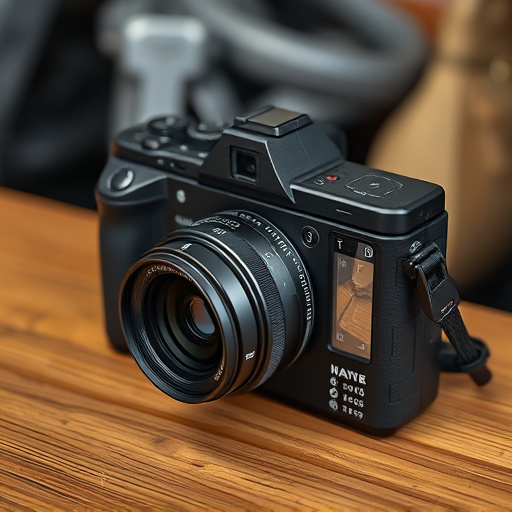Understanding global laws governing body camera use is crucial for law enforcement and citizens as these compact devices become more widely available (body camera for sale). Laws vary regarding consent, privacy, data access, and storage, balancing public safety with individual freedoms. The growing adoption of body cameras promotes transparency, accountability, and trust but raises concerns about privacy invasion during interactions with officers. The global market is expanding, driven by a demand for enhanced public safety and legal evidence, with consumers considering factors like video quality and technology advancements.
In today’s surveillance-driven society, understanding body camera laws is crucial. This comprehensive guide explores the expanding role of body cameras, delving into their benefits and public perception. We analyze legal considerations, including who must wear them and when, while addressing critical privacy concerns. Additionally, we provide market insights on the growing body camera for sale industry, shedding light on this game-changing technology.
Understanding Body Camera Laws: A Comprehensive Overview
Understanding body camera laws is crucial for both law enforcement agencies and citizens alike, especially with the increasing availability of body cameras for sale in today’s digital era. These laws vary significantly across jurisdictions, shaping how and when officers can deploy and use their cameras. One key aspect is consent; some regions mandate that police obtain consent from individuals before recording interactions, while others allow recordings without explicit permission but have strict rules on storage and accessibility of the footage.
Privacy rights are a central concern, leading to regulations about what can be captured, such as prohibiting recordings in private spaces or intimate settings without probable cause. Additionally, body camera laws dictate who has access to the recorded data, with many regions requiring that footage be stored securely and shared only through authorized channels for official purposes, like investigations or court proceedings. Understanding these laws is essential for ensuring transparency, accountability, and respect for individual privacy in law enforcement practices.
The Rise of Body Cameras: Benefits and Public Perception
The adoption of body cameras has been steadily rising, driven by advancements in technology and a growing need for transparency and accountability within law enforcement. These compact and wearable devices offer a unique perspective, capturing real-time footage of interactions between officers and citizens. With numerous body camera for sale options available, departments across the country are embracing this technology to improve public safety and community relations.
Public perception has evolved significantly, shifting from initial skepticism to widespread acceptance. The benefits are clear: enhanced situational awareness for officers, improved accountability measures, and potential de-escalation of tense situations. As body cameras become more prevalent, they contribute to a culture of openness, enabling better documentation and review of police activities. This shift in perception has been pivotal, fostering trust between law enforcement agencies and the communities they serve.
Legal Considerations: Who Needs to Wear Them and When?
The legal landscape surrounding body cameras is evolving, with various jurisdictions implementing different regulations. In many places, law enforcement officers are mandated to wear body cameras during their shifts, especially when interacting with the public. This is often considered a means to enhance transparency and accountability within the criminal justice system. The presence of these devices can act as a deterrent to excessive force or inappropriate behavior by officers, while also providing crucial evidence in investigations.
When it comes to purchasing body cameras, there’s a range of options available for law enforcement agencies and even private individuals (who can buy them for personal use). This includes various models with differing features like video quality, audio recording capabilities, and battery life. As the use of body cameras becomes more widespread, understanding when and who should wear them is essential. Legal considerations around privacy rights, data storage, and evidence admissibility are at the forefront of these discussions, ensuring that the implementation of body camera laws is balanced between public safety and individual freedoms.
Privacy Concerns: Balancing Safety and Individual Rights
The introduction of body cameras for law enforcement has sparked a vital debate surrounding privacy concerns and the delicate balance between officer safety and individual rights. With an increasing number of police forces adopting this technology, especially in response to calls for greater transparency and accountability, it’s essential to examine these issues closely. One of the primary worries is the potential invasion of citizens’ privacy, as body cameras capture intimate details of interactions with law enforcement, including personal conversations.
This technology raises questions about data storage, access, and security, particularly regarding who has the right to view and utilize this footage. As body cameras for sale become more accessible, it’s crucial to establish comprehensive laws and guidelines that protect citizens’ privacy while ensuring their safety during encounters with law enforcement officers. Striking a balance between these two aspects is essential to building public trust in a democratic society.
Market Insights: Exploring the Body Camera for Sale Industry
The market for body cameras, or wearable surveillance devices, has seen a significant surge in recent years, driven largely by the increasing demand for public safety and accountability measures. These small yet powerful tools have become essential equipment for law enforcement agencies worldwide, with the global body camera market expected to reach USD 3.8 billion by 2027, growing at a CAGR of 12% from 2020 to 2027 (MarketWatch). The rise in body camera adoption can be attributed to their ability to enhance officer safety, improve citizen trust, and provide transparent evidence during legal proceedings.
In terms of the body camera for sale industry, various factors influence consumer choices. Key considerations include video quality, battery life, waterproof ratings, and data storage capacity. As technology advances, manufacturers are incorporating advanced features such as night vision capabilities, motion detection, and AI-powered incident detection, making these devices more versatile and effective. The availability of body cameras for sale caters to diverse needs—from professional law enforcement to civilian use, ensuring that individuals have access to this life-saving technology.
